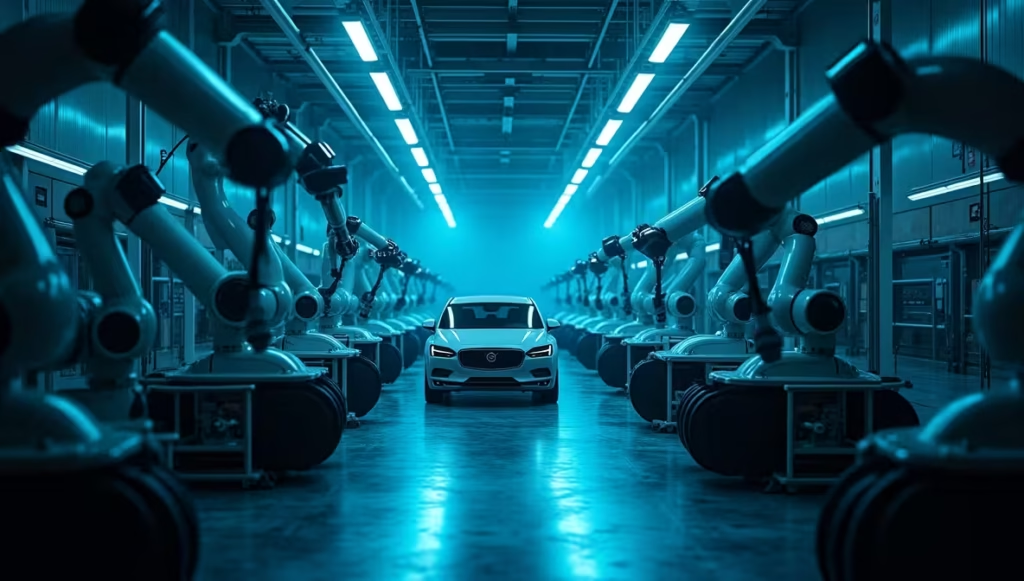Inside China’s ‘Dark Factories’: The Robot‑Run Future of EV Manufacturing
China is rewriting the rules of EV production—by turning off the lights. Quite literally. Chinese manufacturers are building a new wave of fully automated ‘dark factories’ where machines now operate 24/7 without human help. It’s fast, it’s efficient, and it’s changing everything.

What Is a Dark Factory?
Engineers design dark factories to run entirely without on-site workers. That means no lights, no air conditioning, and no breaks. Instead, robots handle every step of the process, using sensors, machine learning, and real-time feedback to keep things moving.
These “lights-out” factories can cut energy use by up to 20%, and boost output dramatically. In some cases, factories have reduced defect rates by over 50% by removing human error from the equation.
Why China Is Leading This Trend
China’s advantage is no accident. The country has invested billions into automation through its “Made in China 2025” initiative. According to the International Federation of Robotics, China installed over 50% of the world’s industrial robots in 2022 alone.
Companies like BYD and Foxconn are already using dark factory models to build EV components—including batteries and drive units—with minimal human oversight.
Meanwhile, U.S. and European factories are only beginning to adopt such systems. The scale of China’s automation push puts its EV supply chain years ahead in terms of speed and consistency.
A Double-Edged Sword
The benefits of dark factories are clear:
- Faster production: Robots work around the clock, with no downtime.
- Lower costs: Energy savings and labor reductions mean cheaper parts.
- Better quality: Machine-controlled systems ensure fewer mistakes.
But there are serious downsides too:
- Massive job loss: Mass automation may displace millions of factory workers in the coming years.
- Ethical concerns: Full automation raises big questions about labor rights and economic equity.
- Geopolitical tension: The U.S. may see this as a competitive threat, especially as battery supply chains grow more strategic.
What This Means for EV Buyers
If you’re in the market for an EV, this might sound like good news. More automation could lead to lower prices and faster delivery times. But it also means that where your EV is made—and how—matters more than ever.
Want to know how EVs compare to gas cars in terms of emissions? In our recent post, we explored how EVs are now 73% cleaner than gas cars—even when battery production is included.
The Bigger Picture
While dark factories may sound futuristic, they’re already here. China is proving that automated EV manufacturing isn’t just possible—it’s profitable. For better or worse, the rest of the world is racing to keep up.
For more on how robotics is reshaping global supply chains, check out this Wall Street Journal video on China’s lights-out factories.
Leave a Reply